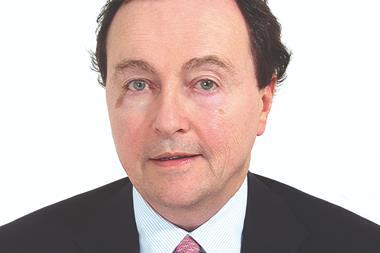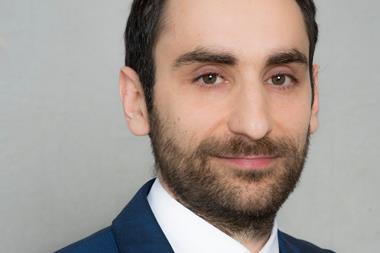Has the practice of ‘fiduciary management’ become defunct? Nikolaus Schmidt-Narischkin, head of fiduciary management at DB Advisors, concedes the concept is a ‘shaky brand’, but argues it still has value.
With complaints circulating that almost everything is called ‘fiduciary’, it is clear the term has lost its value. The usage of the term seems to be widespread, the practices on offer remain hazy in scope. There might be better ways to categorise a field of expertise where even an asset manager passively managing a portfolio of government bonds is the fiduciary agent of his client by regulated definition.
Does that make the case for ‘fiduciary management’ invalid? Most decidedly not, as a lot of German investors of pension assets have learned the hard way. German corporate plan sponsors have, indeed, made a lot of good decisions over the past decade:
• They funded pension liabilities - not always with much enthusiasm, but helped along by changing accounting rules and the certainty that, with an ageing workforce, the happy times of financing growth through the on-balance accrual of pension provisions ends
• They invested conservatively - risk overlays are en vogue
• They have increasingly grown the use of investment consultants and the intensity of strategic partnerships with large actuarial firms steadily
• They have intelligent platforms such as the Master KAG, enabling diversification and timely reporting of good quality
Yet the feeling of having done things right evaporated more often than not in a situation where:
• an initial ALM-study has been done, but nobody champions an ongoing analysis, discussion of targets, goals and assumptions
• the funding ratio drops in times of falling interest rates because the duration of assets and liabilities does not match
• investment consultants might do a good job of picking managers for investment style and experience, but not content
• managers have a view of the markets covered, but nobody is empowered to derive strategy from a holistic economic outlook
• even simple acts of coordination go awry because everybody - consultant and managers - seems bent on using his own performance numbers
Sound familiar? These symptoms have been the starting point for a lot of frustrating investment committee meetings. The underlying problem seems to be one of coordination. One may safely assume that every provider a German plan employs is doing what he’s paid for and doing his best. What seems to be lacking more often than not is a driving force facilitating agreement on goals, coordinating and evaluating information needed to identify the positioning against targets, guaranteeing implementation and intervening when the achievement of objectives is endangered. Also lacking is a body that is not so much freeing the plan sponsor’s decision-makers from their responsibility, but helping them to organise themselves and their external partners in a way that timely decisions are made and without losing focus of the necessities of risk management.
Successful management of plan assets and liabilities can (and should be) organised as a revolving manufacturing process. It starts with the identification of objectives and measurements against which success should be calculated. This is followed by modelling the sensitivities of assets and liabilities, as well as the quantification and budgeting of risk. The result of an ALM-study will be the definition of a benchmark and a strategic asset allocation - the establishment of an ideal portfolio allowing for tactical deviation, but always reflecting goals and affinity for risk. This leads to the selection of managers, as well as the provider of the needed administrative platform, their on-boarding followed by the investment. Performance is then to be measured against individual targets, but more important against the overall objective. Finally, changes in this objective or economic parameters have to be factored into new investment.
Recent Dutch literature on the matter and in this context suggests the job of a fiduciary manager is that of a “fire brigade helping corporate or pension funds when they feel the need to change something”. That might be the case for Dutch pension funds that are organised on an industry level, as well as big German or Austrian Pensionskassen. However, implementing such a system is particularly challenging for the pension funds of German mid-caps or even DAX companies, which are tiny in comparison to their Dutch counterparts. The governance of plan assets, funding strategy, the holistic monitoring of data and risk exposure are often still rudimentary. With average plan assets levelling out at well below €1bn, internal management will never be a core activity either.
What Germany really needs for the growing CTAs and Pensionsfonds is a service proactively offering ongoing advice in preparation of strategic decision-making, organising the different parts and providers and taking the responsibility for the outcome in the face of the plan sponsor. A number of consultants and asset managers catering to the German market are gearing up for the challenge. Their offer is modular - not trying to crowd traditional providers out, but bringing them to the table. It isn’t just talk, but the ability to show processes and transparent methods that make the difference in accountability. Finally, it does not limit itself to the ‘large tickets’, but helps smaller pension funds through standardisation and flexibility as well.
Nikolaus Schmidt-Narischkin is head of fiduciary management at DB Advisors.












